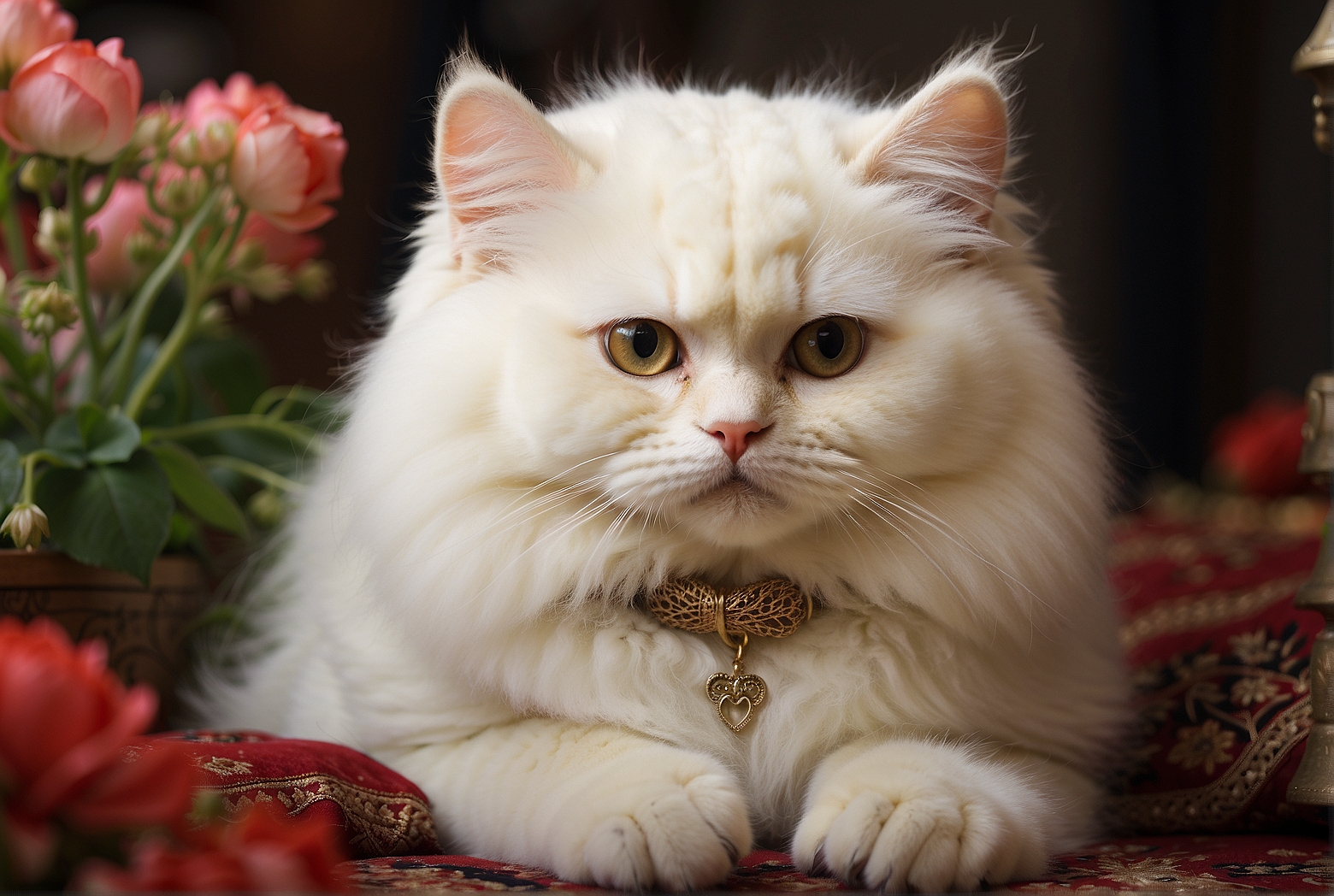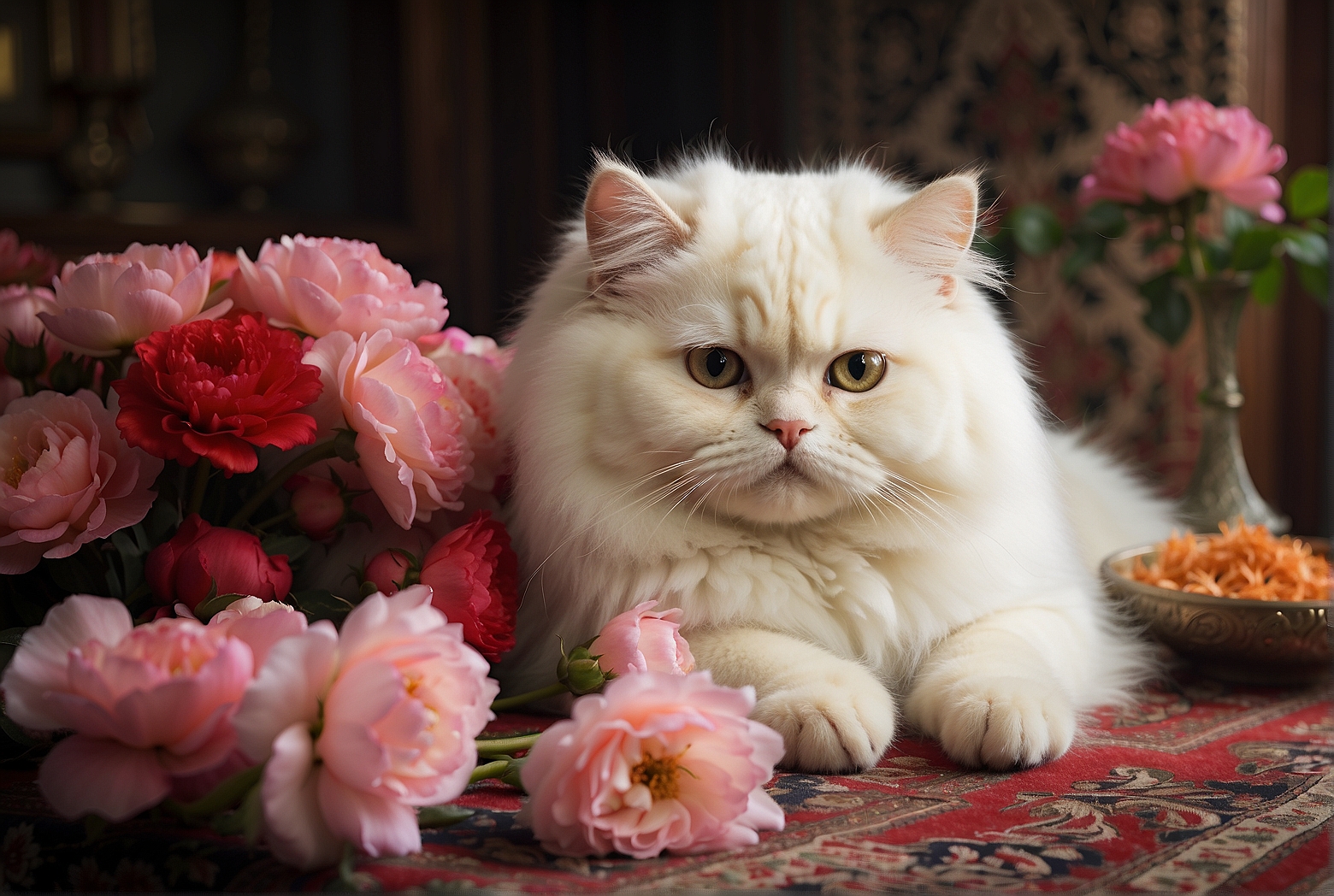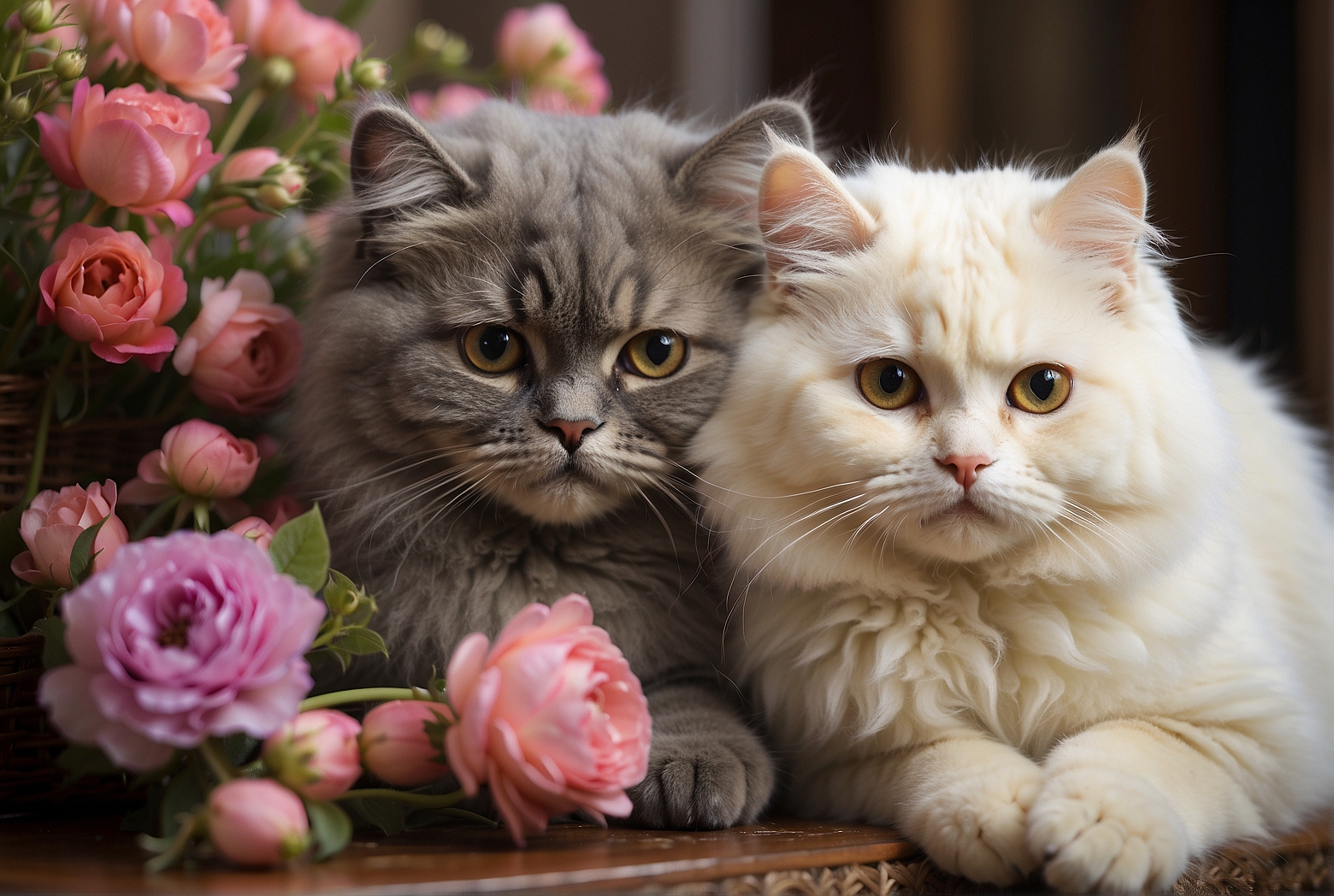If you’ve ever had the pleasure of being in the company of a Persian cat, then you’ll understand why they are known for being one of the most affectionate feline breeds out there. From their soft, luxurious coats to their expressive eyes, these charming creatures have a way of melting your heart. But have you ever wondered why Persians are so affectionate? Their nature goes beyond mere cuddliness – it’s a combination of genetics, upbringing, and their love for human companionship that makes these furry felines so irresistibly fond of showering you with love and affection.
Cultural Influence
Historical Background
The culture of Iran has been shaped by a long and rich history that dates back to ancient times. Persia, as it was known in the past, was home to one of the oldest civilizations in the world, the Persian Empire. This empire had a significant impact on the culture, traditions, and values of the Iranian people. Throughout the centuries, Iran has also experienced cultural exchanges with neighboring countries and civilizations, further enriching its cultural heritage.
Iranian Values
Iranian values are deeply rooted in traditions and customs that have been passed down through generations. Family, community, and religion hold immense importance in Iranian society. Iranians place a strong emphasis on respect, kindness, and hospitality towards others. These values are reflected in their relationships, social interactions, and daily lives.
The Importance of Relationships
Building and maintaining strong relationships is highly valued in Iranian culture. Iranians believe in nurturing meaningful connections with family members, friends, and even strangers. The bonds formed through these relationships provide a sense of belonging and support. Relationships are considered essential for personal growth, happiness, and overall well-being.
Family Dynamics
Strong Familial Bonds
Family plays a central role in Iranian society, and the bonds between family members are incredibly strong. The family unit holds a special place, and individuals prioritize their family’s needs and well-being above their own. Family members often rely on each other for emotional support, guidance, and assistance in various aspects of life. This deep sense of unity creates a strong support system within families.
Close-knit Extended Families
In addition to immediate family members, Iranians also maintain close relationships with their extended family. The extended family includes aunts, uncles, cousins, and even distant relatives. These extended family ties are cherished, and Iranians often gather for family gatherings and celebrations. The unity and support provided by the extended family contribute to a sense of community and belonging.

Emphasis on Family Unity
Family unity is highly valued in Iranian culture. Iranians believe in working together and supporting each other through challenges. Decision-making within the family often involves consulting with all family members to ensure a collective agreement. This emphasis on family unity fosters a strong sense of loyalty and commitment towards one’s family, creating a harmonious and secure environment for all.
Love and Emotions
Expressive Nature
Iranians are known for their expressive nature when it comes to love and emotions. It is common for Iranians to openly express their feelings towards their loved ones through words, gestures, and acts of affection. The expression of love and emotions is seen as a natural and healthy part of human connection, fostering a deep sense of intimacy and understanding.
Poetry and Literature
Poetry holds a special place in Iranian culture, and it has been an integral part of Persian civilization for centuries. Iranians have a deep appreciation for poetic expression, which often revolves around love, emotions, and the beauty of life. Poetry and literature provide a platform for Iranians to express and explore their innermost thoughts and feelings, acting as a powerful medium to connect with others.
Romantic Traditions
Iranians have a rich history of romantic traditions that continue to be celebrated to this day. From the poetic art of courtship to the significance of traditional marriage ceremonies, love and romance are cherished aspects of Iranian culture. Romantic gestures, such as giving flowers, writing love letters, and sharing romantic meals, are commonly practiced to express affection and maintain the spark in relationships.
Religion and Spirituality
Islamic Influence
Islam is the predominant religion in Iran and has a profound influence on Iranian culture and values. The principles of Islam, such as compassion, kindness, and humility, shape the way Iranians interact with others. Islamic teachings emphasize the importance of maintaining harmonious relationships and treating others with respect and dignity.
Sufi Mysticism
Sufism, a mystical branch of Islam, has also played a significant role in shaping Iranian culture. Sufism focuses on finding spiritual enlightenment through love and the pursuit of divine closeness. Sufi practices and teachings have inspired Iranians to cultivate a deep sense of compassion, kindness, and empathy towards others, fostering a culture of warmth and affection.

Compassion and Kindness
Compassion and kindness are deeply cherished values in Iranian culture. Iranians believe in treating others with empathy and understanding, regardless of their background or circumstances. Acts of charity, helping those in need, and showing concern for others are considered highly virtuous. This emphasis on compassion and kindness creates a society that is caring and supportive.
Social Etiquette
Warm and Welcoming Culture
Iranians are famous for their warm and welcoming nature. Guests, whether acquaintances or strangers, are treated with hospitality and respect. Iranians go out of their way to make others feel comfortable and valued. Inviting guests into their homes, sharing meals, and engaging in genuine conversations are common practices that reflect the culture’s hospitality and friendliness.
Gestures of Affection
Iranians often express their affection through physical gestures. Handshakes, hugs, and kisses on the cheek are common ways to greet and bid farewell to loved ones and close friends. These gestures serve as a means to strengthen relationships, showing care and affection towards one another. The importance placed on physical affection further enhances the sense of connection within Iranian society.
Importance of Hospitality
Hospitality is deeply ingrained in Iranian culture. Iranians take great pride in their ability to provide a welcoming and comfortable environment for guests. Offering food, drinks, and a warm reception are considered essential acts of hospitality. Iranians are known for their generosity, going above and beyond to ensure the well-being and satisfaction of their guests.
Art and Aesthetics
Beauty and Appreciation
Beauty and appreciation for aesthetic values are integral to Iranian culture. Iranians have a keen eye for beauty in all aspects of life, including art, architecture, nature, and everyday objects. The appreciation of beauty is not only limited to visual aesthetics but also extends to the emotions and experiences that evoke a sense of wonder and delight.
Love for Music and Dance
Music and dance hold a special place in Iranian culture and are deeply intertwined with expressions of emotions and joy. Classical Persian music, with its soulful melodies and poetic lyrics, touches the hearts of Iranians. Various traditional dances, such as the mesmerizing movements of Persian ballet, allow Iranians to express themselves physically and connect with their cultural heritage.
Expression through Art
Artistic expression is highly valued in Iranian culture, ranging from traditional forms such as calligraphy and miniature painting to contemporary visual arts. Iranians appreciate various art forms as a means of self-expression and storytelling. Art exhibitions, cultural festivals, and galleries are common avenues for Iranians to showcase and celebrate their artistic talent and creativity.
Community and Support
Collectivist Society
Iranian society is predominantly collectivist, emphasizing the well-being of the community over individual pursuits. Iranians prioritize the needs and interests of their community, fostering a sense of shared responsibility and mutual support among its members. The collectivist mindset creates a supportive environment where individuals come together to help and lift each other up.
Helping and Supporting Others
Helping and supporting others is seen as a moral duty in Iranian culture. Iranians are known for their willingness to extend a helping hand to those in need, whether it be within their family, community, or society at large. Acts of charity, volunteering, and assisting others in times of difficulty are deeply valued and celebrated.
Sense of Belonging
Iranian culture places great importance on fostering a sense of belonging and unity. Iranians seek to create inclusive communities where everyone feels valued and accepted. Community gatherings, religious festivals, and cultural celebrations provide opportunities for Iranians to connect with others, reinforcing their sense of identity and common purpose.
Education and Upbringing
Values of Respect and Kindness
Education in Iran emphasizes the importance of core values such as respect and kindness. From a young age, children are taught to treat others with courtesy and empathy. Respect for elders, teachers, and authority figures is instilled to create a harmonious society based on mutual respect and understanding.
Nurturing Emotional Intelligence
Iranian education also emphasizes the development of emotional intelligence. Emotional intelligence is considered essential for building healthy relationships, resolving conflicts, and understanding oneself and others. Iranians are encouraged to recognize, express, and regulate their emotions effectively, leading to greater compassion and empathy towards others.
Teaching Empathy and Compassion
Empathy and compassion are core values taught within Iranian families and schools. Iranians believe in the importance of understanding and connecting with others’ emotions and offering support and comfort when needed. Learning how to empathize and show compassion towards others is seen as vital for fostering harmonious relationships and creating a caring society.
Historical Influences
Persian Empire
The Persian Empire, known for its vast territories and cultural achievements, has had a significant influence on Iranian culture. Persian art, architecture, and literature from this era continue to shape the aesthetic sensibilities of Iranians. The legacy of the Persian Empire has instilled a sense of pride and cultural identity among Iranians, preserving and perpetuating traditions and customs.
Cultural Exchanges
Iran’s geographical location has facilitated cultural exchanges with neighboring countries and civilizations throughout history. These exchanges have enriched Iranian culture, introducing new ideas, traditions, and artistic influences from various cultures. From the Silk Road to increased globalization, Iran has always been a crossroads of cultures, contributing to the diversity and dynamism of its cultural heritage.
Tolerance and Acceptance
Iran has a long history of tolerance and acceptance towards different cultures, religions, and ethnicities. This openness has allowed for the integration of various influences, leading to a diverse and inclusive cultural landscape. Iranians are proud of their multicultural heritage, celebrating the contributions of different cultures in shaping their own.
Conclusion
Rich Cultural Heritage
Iran’s cultural heritage is a tapestry woven with the threads of its historical background, family dynamics, love and emotions, religion and spirituality, social etiquette, art and aesthetics, community and support, education and upbringing, and historical influences. The interplay of these factors has given rise to a culture that embraces warmth, affection, compassion, and kindness.
Enduring Traditions
Despite the passing of time and changing global dynamics, many Iranian traditions and values have endured. Family bonds remain strong, expressions of love and emotions are cherished, hospitality continues to be a cornerstone of Iranian culture, and the appreciation for art and aesthetics remains deeply rooted. Iranians take pride in their rich cultural heritage and strive to preserve and transmit these traditions to future generations.
The affectionate nature of Persians can be attributed to the cultural influences, historical background, and values that have shaped their society. Understanding the cultural underpinnings helps shed light on why Iranians prioritize relationships, express emotions openly, and extend warmth and kindness to others. Appreciating these aspects of Persian culture fosters a deeper connection, allowing for a greater understanding and appreciation of the Iranian people and their unique way of life.
